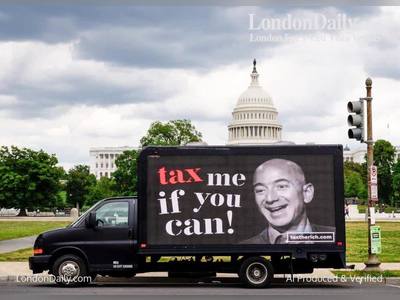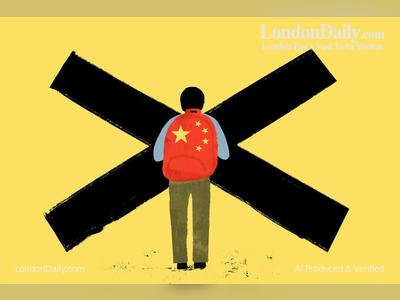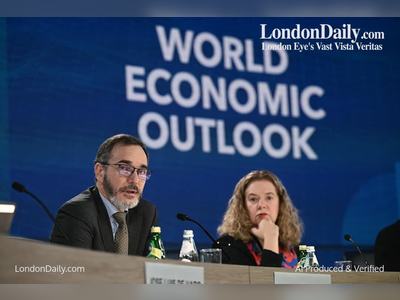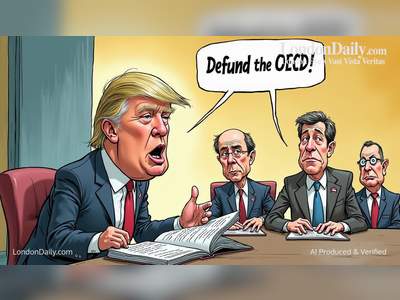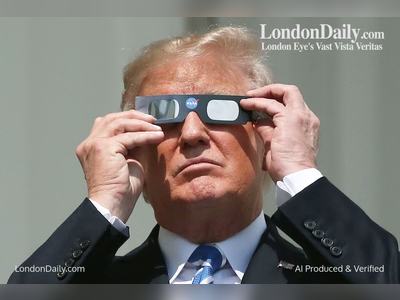
King Charles Adjusts Environmental Advocacy Amid Political Shifts
The monarch's public stance on net zero faces challenges as UK political consensus evolves.
King Charles III is expected to recalibrate his public support for the net zero emissions target following comments from Kemi Badenoch, the leader of the Conservative Party, who declared the goal of achieving net zero by 2050 as 'impossible'.
This marks a significant departure from the previously established political consensus in the UK regarding greenhouse gas emissions reduction.
Badenoch stated that restoring trust would require an unvarnished recognition of the challenges ahead.
The net zero target was originally set by former Prime Minister Theresa May's government in 2019 and has been upheld by subsequent administrations.
The king has spent over fifty years advocating for environmental issues, frequently emphasizing the urgency of climate action.
At the recent Cop28 UN climate change conference held in Dubai, King Charles reiterated the necessity of immediate measures to progress toward a zero-carbon future, asserting that future generations will be affected by the actions taken today.
As political viewpoints have shifted, the monarch faces a potential entanglement in party politics, especially with the Conservative Party’s revised approach, and the Reform Party's position seeking to abolish the net zero target altogether.
This situation has prompted experts to suggest that the king must adopt a more measured approach to his environmental views.
Craig Prescott, a constitutional expert, noted the importance of maintaining a distance from party politics, especially as public opinion on these matters evolves.
Despite the political climate, King Charles is expected to continue prioritizing environmental challenges during his upcoming state visit to Italy, which begins tomorrow.
He will participate in meetings emphasizing collaboration between the UK and Italy on clean energy transitions.
Notably, in Ravenna, the king will engage with farmers affected by recent catastrophic flooding, spotlighting the real-world impacts of climate change.
In addition to these engagements, the royal couple will mark their 20th wedding anniversary at a banquet in Rome and visit iconic sites such as the Colosseum, fostering ties between the UK and Italy, even as political ideologies differ significantly.
Recent disclosures have highlighted concerns regarding the king's involvement in political controversies, emphasizing the need for careful navigation of party politics.
Transparency issues related to discussions involving Prince Andrew and potential connections to controversial investments have further complicated the monarchy's public image.
Future royal engagements, including possible attendance by Prince William at the Cop30 UN climate conference in Brazil, may also reflect caution regarding net zero discussions, though royal representatives often symbolize government policies internationally.
Some environmental advocates express concerns that limiting the monarch's and heir's voices on climate policy may weaken the UK's stance globally.
Experts suggest that while the king may not explicitly mention the 2050 target, he retains the authority to endorse broader climate action.
Buchingham Palace has refrained from commenting on these matters.
This marks a significant departure from the previously established political consensus in the UK regarding greenhouse gas emissions reduction.
Badenoch stated that restoring trust would require an unvarnished recognition of the challenges ahead.
The net zero target was originally set by former Prime Minister Theresa May's government in 2019 and has been upheld by subsequent administrations.
The king has spent over fifty years advocating for environmental issues, frequently emphasizing the urgency of climate action.
At the recent Cop28 UN climate change conference held in Dubai, King Charles reiterated the necessity of immediate measures to progress toward a zero-carbon future, asserting that future generations will be affected by the actions taken today.
As political viewpoints have shifted, the monarch faces a potential entanglement in party politics, especially with the Conservative Party’s revised approach, and the Reform Party's position seeking to abolish the net zero target altogether.
This situation has prompted experts to suggest that the king must adopt a more measured approach to his environmental views.
Craig Prescott, a constitutional expert, noted the importance of maintaining a distance from party politics, especially as public opinion on these matters evolves.
Despite the political climate, King Charles is expected to continue prioritizing environmental challenges during his upcoming state visit to Italy, which begins tomorrow.
He will participate in meetings emphasizing collaboration between the UK and Italy on clean energy transitions.
Notably, in Ravenna, the king will engage with farmers affected by recent catastrophic flooding, spotlighting the real-world impacts of climate change.
In addition to these engagements, the royal couple will mark their 20th wedding anniversary at a banquet in Rome and visit iconic sites such as the Colosseum, fostering ties between the UK and Italy, even as political ideologies differ significantly.
Recent disclosures have highlighted concerns regarding the king's involvement in political controversies, emphasizing the need for careful navigation of party politics.
Transparency issues related to discussions involving Prince Andrew and potential connections to controversial investments have further complicated the monarchy's public image.
Future royal engagements, including possible attendance by Prince William at the Cop30 UN climate conference in Brazil, may also reflect caution regarding net zero discussions, though royal representatives often symbolize government policies internationally.
Some environmental advocates express concerns that limiting the monarch's and heir's voices on climate policy may weaken the UK's stance globally.
Experts suggest that while the king may not explicitly mention the 2050 target, he retains the authority to endorse broader climate action.
Buchingham Palace has refrained from commenting on these matters.

